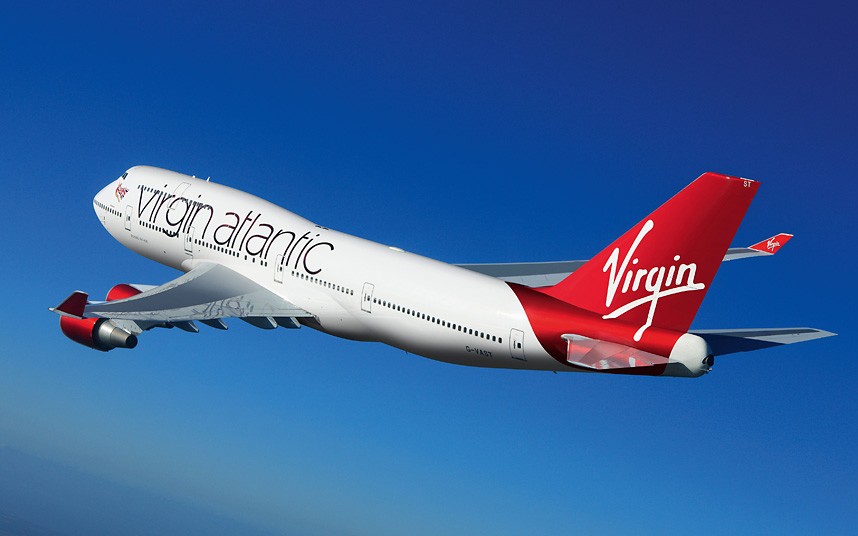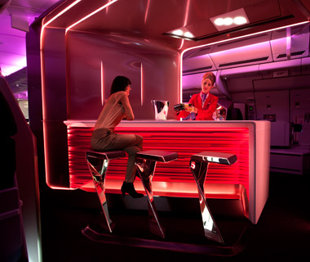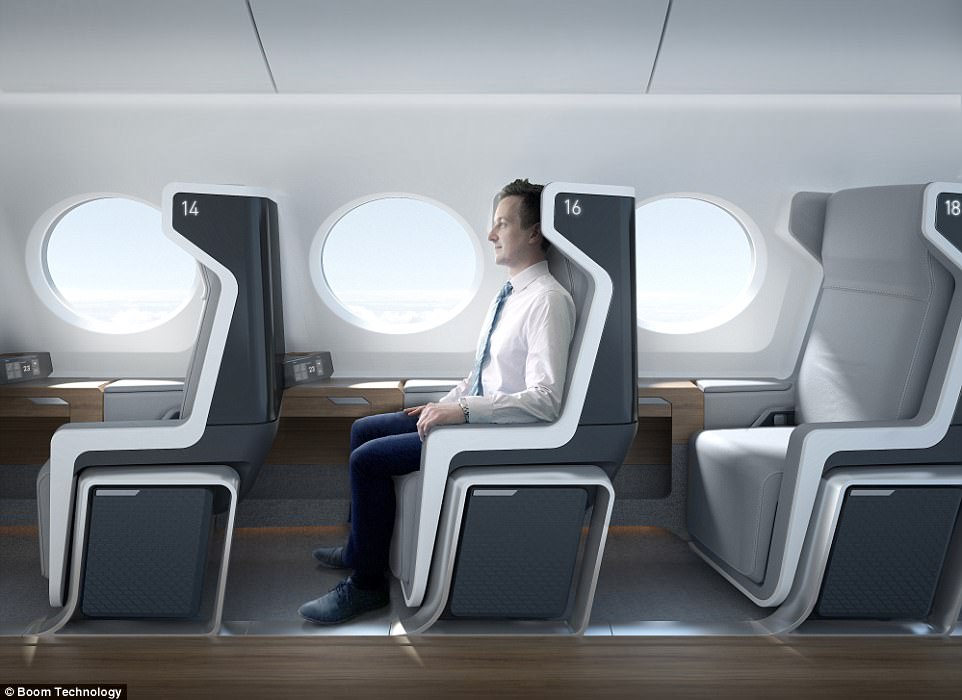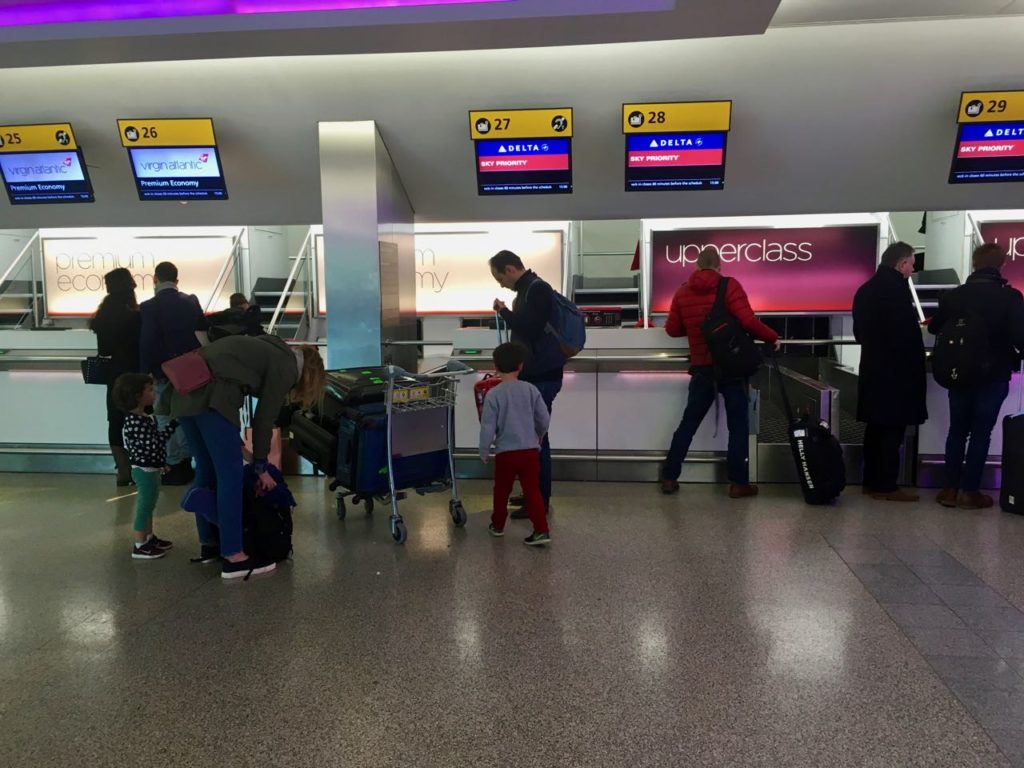Virgin Atlantic is my pick for world’s best airline, hands down, no close challengers. Before you start commenting about Q-Suites, reverse herringbone blah blah and showers, please let me make my case.
My feelings about Virgin Atlantic are not retrospective of seat dimensions, amouse bouches, or the likes. This is an all encompassing look not only at the airline’s past, but it’s trajectory. The contrarian airline entered the market at one of the worst moments in aviation history, and probably should have failed before it launched.
It survived and has thrived by pinpointing the things that its competitors miss and get wrong. There’s no indication that contrarian strategy will change as the airline plans to re-launch supersonic travel with Boom.
I’ll examine five factors that support this proclamation.
1) Virgin Atlantic Is Good Enough To Out-Compete Anyone

Let’s talk business.
When Richard Branson stumbled into the airline business in the 1980s, he must have been naieve. How else does one decide to launch service on the most competetive business travel route in the world?
Back then, startup baby Virgin Atlantic flew a single daily service between London Heathrow (LHR) and New York City Newark (EWR).
On the high end, there was British Airways Concord. Anyone who could afford to fly it did, forgoing any inferior subsonic option. On the low end was PeopleXpress, which matched Virgin’s market entry with basement fare prices. In the middle was everyone else, and that crowd was no joke at the time. The fledgling had to compete on that route against the likes of legendary American carriers like Pan Am, TWA and Braniff.
Virgin Atlantic was a company that was faced with a perilous death before it was even born. Branson’s instinct and charisma proved an overpowering force, however. Success didn’t come overnight. Branson once famously quipped that the fastest way to become a millionaire was to make a billion dollars and buy an airline.
On the power of brand and passenger experience alone, Virgin Atlantic survived to grow into a global force. That star power still works today. The airline makes money on competetive routes, it makes money in the company of highly subsidized Middle Eastern carriers like Emirates, which are overbearing enough to make even the mightiest U.S. CEO’s squeal.
Sure, Virgin Atlantic’s returns have sunk slightly in recent quarters, but come on! The U.K. is in a funk, the pound has sunk, stifling tourism, and Norwegian is offering 787 service at Ryanair prices.
The Branson vision and drive for excellence are still in full force. Onward.
2) Virgin Actually Invented Most Of The Things Travel Bloggers Like To Brag About

The bar aboard a Virgin Atlantic A330.
The next time you snap a selfie of yourself lying down on an airplane, sipping champagne at an onboard bar, or eating a la carte in an airport lounge, thank Virgin.
Sure, British Airways has the claim to fame for introducing lie-flat seats in business class, but Branson wasted no time one-upping his goliath neighbor, becoming first to give business class passengers unconditional access to aisles. That was a first-class exclusive amentity at the time. Doing so required a team of designers to completely rethink how seats could be fit onto an airplane, turning seats sideways (the regulatory approval on such a thing was a surefire migraine).
Similarly, onboard bars were virtually extinct when Virgin Atlantic entered the market. Branson had the foresight to bring the bar back. If nothing else, it makes for great cameo shots in James Bond films. I’ve talked to passengers who bought tickets on Virgin just because they saw the bar in a movie. Like most ideas rejected by the rest of the industry, Branson made it work.
Virgin’s Clubhouse lounges were the best in the world when they were introduced. They are the best in the world today. Qatar Airways bragadoccio can’t compete with Virgin’s truly bespoke services at London Heathrow, where Upper Class and frequent fliers enter the airport through a private lobby and security checkpoint worthy of a midtown hotel, can get their hair cut for free or spend the night in a private bedroom with control tower views. Lounge attendants offer each guest a tour and rundown of the services available for free. There’s nothing else like it.
3) Virgin Will Invent Most Of The Things Travel Bloggers Will Brag About In The Future

This guy is from the future. He writes for Point Me To The Plane. He is going 1,500 miles per hour on a Boom jet. He’s on a Virgin flight.
Travel writers fawning over the rebirth of supersonic air travel in 2023 will be tweeting from a Virgin branded jet.
Virgin Group is the launch custsomer for Boom Aviations’s 55-seat supersonic airliner. Skeptical? The company already took delivery of an engine capable of supercruise. Those engines don’t have to run rocket-like afterburners to sustain supersonic flight, completing perhaps the biggest puzzle piece to fuel efficient and profitable supersonic travel.
Near-term, while Virgin’s 787s are mostly grounded right now due to engine recalls, those engines will be replaced, and Virgin will at least tie head-to-head aircraft comparisons on just about any route they enter. Unlike the bare-bones 787s that all too many carriers have ordered, Virgin has beautified its Dreamliners to cinematic levels.
I’m keen to believe business travellers will happily choose a Virgin 787 over an Emirates or Singapore A380. The Dreamliner boards and disembarks much quicker, has better air onboard, and offers fuel efficiency gains that will likely keep fares more competetive.
4) Virgin Manages To Be A Great Airline For Many Different Passenger Types And Demographics

There are rarely lines at any of Virgin Atlantic’s check-in counters, whether you’re traveling economy, premium economy, or Upper Class.
A spoonful of sugar makes the medicine go down. Economy class is always some form of medicine, the minimum viable misery option for long-haul travel (unless we consider those spare births on cargo ships). Virgin gets this principle, and makes small investments that add up bigly for economy passengers.
Virgin’s economy seats aren’t as nice as those offered by Japanese carriers, but that’s about it. Virgin’s economy class product has held up despite unsightly cuts to its closest competitors — struggling European legacy airlines. Virgin, unlike most of it’s profit-seeking western counterparts, won’t be caught dead appearing in press about airlines skimping and cheating their poorest passengers to make room for the rich. Virgin wants to be the better choice for everyone, not just the 1 percent.
I have never seen a line at an economy check-in counter on a Virgin Atlantic flight. This may be luck, but given how often I travel and read reviews, I doubt it.
When Virgin was forced to introduce tiered economy servive levels to remain competetive, they were transparent about it. The VS email I recently got announcing tiered fares show service levels side to side. Imagine that, an airline that tells you that its basic economy product is actually a gambit to make fares appear lower on the internet. Honesty is always a good game.
5) Virgin Has Consistently Seen The Future In Ways Nobody Else Has
One of the most curious and insightful innovations to emerge from the Virgin Atlantic headquarters must have seemed mundane at the time. Virgin was first to introduce premium economy, in 1996. Some observers thought they were insane. To offer economy seats with legroom comparable to business class didn’t make sense back in 1995, when most airlines offered recliner seats in business with legrests.
It turned into a move that couldn’t have been more prescient. It took great foresight to realize that business class would evolve into the outlandish experience it is today, but also a keen and intimate understanding of customers.
By the time other carriers were reacting and one-upping one another with flat beds in business, Virgin had already captivated a market that was being completely ignored in the arms race: frugal business travellers. These folks, the ones that business class was originally designed for (when business was a separate economy section in the 1980s), were out of the discussion when British Airways jacked up prices so that executives could fly supine.
Virgin also had the foresight to wait to introduce less-than economy service until it had become just about standard among European carriers. Did they forgo profit in the short run? Likely so. Did they alienate customers who never saw it coming? No. That’s because Virgin Atlantic executives actually care how you feel about Virgin Atlantic. Their brand matters, and is worth so much more simply because it is well cared for.
That brand has and always will survive cyclical changes because it is consistent. It provides the lift that keeps the airline aloft of competitors.
In 1984 the Virgin brand, which was still young at the time, was the only logical reason someone would choose the airline over dirt-cheap PeopleXpress, rocket-fast British Airways or lush PanAm. Richard Branson knew this, and remained steadfast to the belief that if people knew they could go somewhere and get treated better, eventually they would choose the nicer route.
Branson acutely sensed that deregulation — still new at the time — would take a toll on competing airlines, and that separating out and retaining loyal fliers would become an afterthought among legacy airline brass. He was right about that at the time, and still is.
The flier has always been the focal point on Virgin, and that human focus nurtures a perpetually optimistic future vision for both passenger and airline.
The responses below are not provided or commissioned by the bank advertiser. Responses have not been reviewed, approved or otherwise endorsed by the bank advertiser. It is not the bank advertiser's responsibility to ensure all posts and/or questions are answered.
5 comments
I honestly admire your enthusiasm and actually get your point(s)
However I think maybe you’re in the VS Clubhouse Heathrow, after one too many, and then a bartender slipped something in your drink?
Singapore, Cathay, Emirates, showers onboard, butlers, chefs, top notch service, gourmet food, global footprints…… Virgin??? Ummm nope. Not even close baby.
And I like VS as a brand big time. However it’s tired now, lost its way, and waaaaay past it’s hey day of innovation/ freshness. Sad but true John.
But I do like your positivity (perhaps willing for it to survive? unlike V America)
Thanks Andy,
Sure, Virgin retains a relatively boutique profile relative to the ambitious (and well financed) growth of carriers like Emirates and Singapore. I would argue strongly however that Virgin has had a more unique role in pushing the bar higher in its home market. Virgin is an entirely private company, entirely dependent on the free market.
This is significant, because Virgin has found a way to consistently monitize service improvements, which is quite antithetical to the cost-side strategies that a lot of the big global carriers and U.S. carriers have embarked on.
Emirates has the ability to put more bling on its airplanes, sure, and has grown very fast. Of course that airline, like Singapore, Etihad, et al, is heavily supported by its local government as a conduit to drive business traffic to the hub city.
Virgin provides a model and a way forward that flies in the face of its competitors, which are not Emirates and Singapore, but British Airways, American, Lufthansa, United, etc.
Their new fleet additions are just as gorgeous as ever, and their investment in BOOM signals a continued push to drive positive, passenger focused change in the for-profit airline sector.
This is a wonderful post! Thanks for sharing your knowledge with us! I hope to read more of your post which is very informative and useful to all the readers. I salute writers like you for doing a great job!
Do the 787’s have sit down bars onboard? Since that’s such a large part of the company’s future, losing them would be a significant downgrade.
Thanks for reading, Christian,
Yes, the new 787s have bars that are very similar to the A330 bar pictured above.